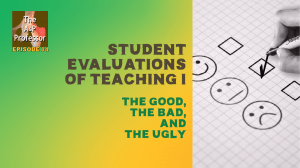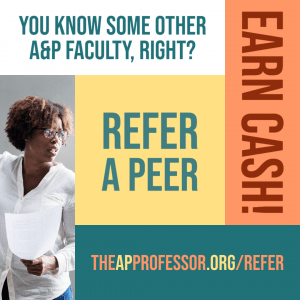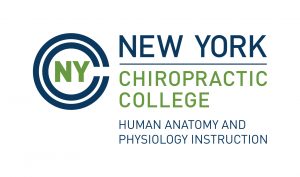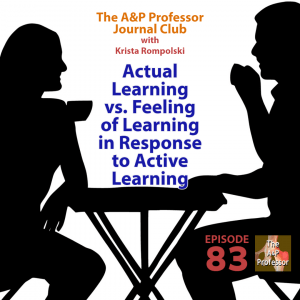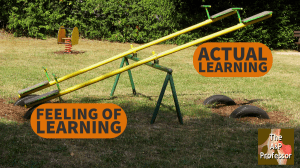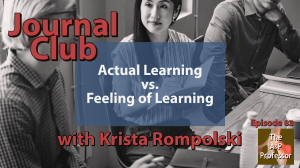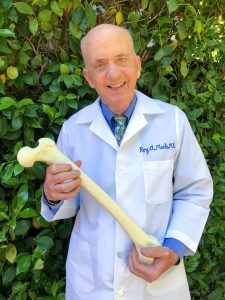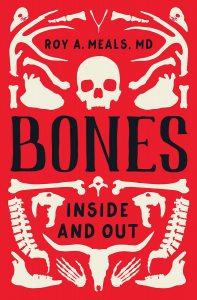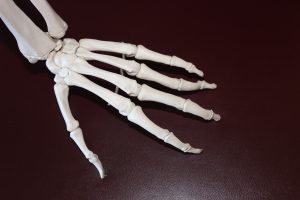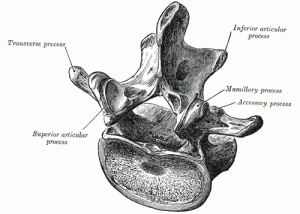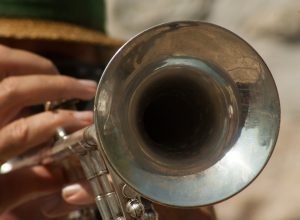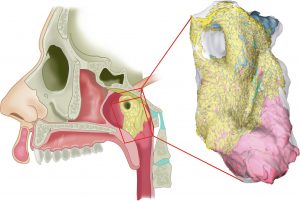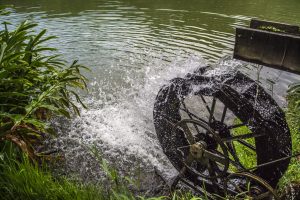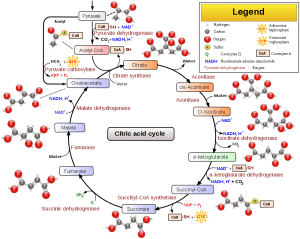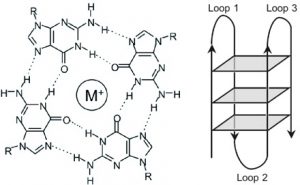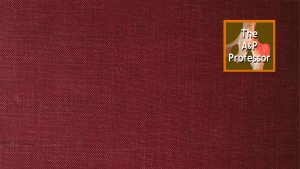Student evaluations of teaching (SETs) are problematic in many ways—but perhaps useful in other ways. Host Kevin Patton discusses the good, the bad, and the ugly. What are the issues and what's behind those issues?
- 00:47 | Student Evaluation of Teaching (intro)
- 02:28 | Share the Fun: Refer & Earn
- 05:37 | The Good
- 08:39 | Sponsored by AAA
- 10:12 | The Bad
- 26:10 | Sponsored by HAPI
- 28:13 | The Ugly
- 44:15 | Sponsored by HAPS
- 45:26 | Staying Connected
If you cannot see or activate the audio player click here.
Apply for your credential (badge/certificate) for listening to this episode.
Please take the anonymous survey: theAPprofessor.org/survey
Questions & Feedback: 1-833-LION-DEN (1-833-546-6336)
Follow The A&P Professor on Twitter, Facebook, Blogger, Nuzzel, Tumblr, or Instagram!
Good teaching cannot be reduced to technique; good teaching comes from the identity and integrity of the teacher. (Parker Palmer)
Student Evaluation of Teaching (intro)
1.5 minutes
A brief intro to this discussion of student evaluation of teaching. This is the first of two planned episodes on this subject.
Share the Fun: Refer & Earn
3 minutes
You can earn cash rewards—up to $25 for referring other A&P faculty, teaching assistants, and grad students to this podcast. Just go to theAPprofessor.org/refer to get your personal referral URL.
Student Evaluation of Teaching: The Good
3 minutes
There is useful, actionable information that can be obtained from valid and fair student evaluations of teaching. When they work.
Sponsored by AAA
1.5 minutes
A searchable transcript for this episode, as well as the captioned audiogram of this episode, are sponsored by the American Association for Anatomy (AAA) at anatomy.org.
Don't forget—HAPS members get a deep discount on AAA membership!
Student Evaluation of Teaching: The Bad
16 minutes
A lot can go wrong with student evaluations of teaching. In this segment, Kevin uses a recent research article demonstrating unfairness of valid evaluations as a launching point for discussion.
- Unbiased, reliable, and valid student evaluations can still be unfair (journal article) my-ap.us/38baMg3
- Even ‘Valid’ Student Evaluations Are ‘Unfair' (online article) my-ap.us/34eyAhG
- Actual Learning vs. Feeling of Learning | Journal Club Episode | TAPP 83 (previous episode mentioned in this discussion)
Sponsored by HAPI Online Graduate Program
2 minutes
The Master of Science in Human Anatomy & Physiology Instruction—the MS-HAPI—is a graduate program for A&P teachers, especially for those who already have a graduate/professional degree. A combination of science courses (enough to qualify you to teach at the college level) and courses in contemporary instructional practice, this program helps you be your best in both on-campus and remote teaching. Kevin Patton is a faculty member in this program. Check it out!
Student Evaluation of Teaching: The Ugly
16 minutes
Kevin turns his attention to a few of the potential ugly issues concerning student evaluations of faculty.
- The 20 Meanest Teacher Evaluations of All Time (an informal list of anecdotes) my-ap.us/3r6WANE
- Prof Evaluations PART 3 – The Ugly | Evaluations can bring out the least attractive aspects of human nature (online essay) my-ap.us/3p9QFFW
- Teaching Evals: Bias and Tenure (online essay) my-ap.us/3asoH43
- The Frequency of “Brilliant” and “Genius” in Teaching Evaluations Predicts the Representation of Women and African Americans across Fields (research article on bias in online professor-evaluation sites) my-ap.us/3h1r9jc
Sponsored by HAPS
1 minute
The Human Anatomy & Physiology Society (HAPS) is a sponsor of this podcast. You can help appreciate their support by clicking the link below and checking out the many resources and benefits found there. Watch for virtual town hall meetings and upcoming regional meetings!
If the hyperlinks here are not active, go to TAPPradio.org to find the episode page.
- More details at the episode page.
- Transcript available in the transcript box.
- Listen to any episode on your Alexa device.
- Need help accessing resources locked behind a paywall? Check out this advice from Episode 32 to get what you need! https://youtu.be/JU_l76JGwVw?t=440
Take The A&P Professor experience to the next level!
The A&P Professor community
Earn cash by referring other A&P faculty to this podcast:
theAPprofessor.org/refer
Tools & Resources
- Amazon
- Text Expander
- Rev.com
- Snagit & Camtasia
- Krisp Free Noise-Cancelling App
- The A&P Professor Logo Items
Sponsors
- Transcript and captions for this episode are supported by the American Association for Anatomy | anatomy.org
- The Human Anatomy & Physiology Society provides marketing support for this podcast | theAPprofessor.org/haps
- Distribution of this episode is supported by NYCC's online graduate program in Human Anatomy & Physiology Instruction (HAPI) | nycc.edu/hapi
Clicking on sponsor links helps let them know you appreciate their support of this podcast!
Follow The A&P Professor on Twitter, Facebook, Blogger, Nuzzel, Tumblr, or Instagram!
The A&P Professor® and Lion Den® are registered trademarks of Lion Den Inc. (Kevin Patton)
As an Amazon Associate I earn from qualifying purchases. I may be compensated for links to sponsors and certain other links.
Click here to listen to this episode—or access the detailed notes and transcript.

